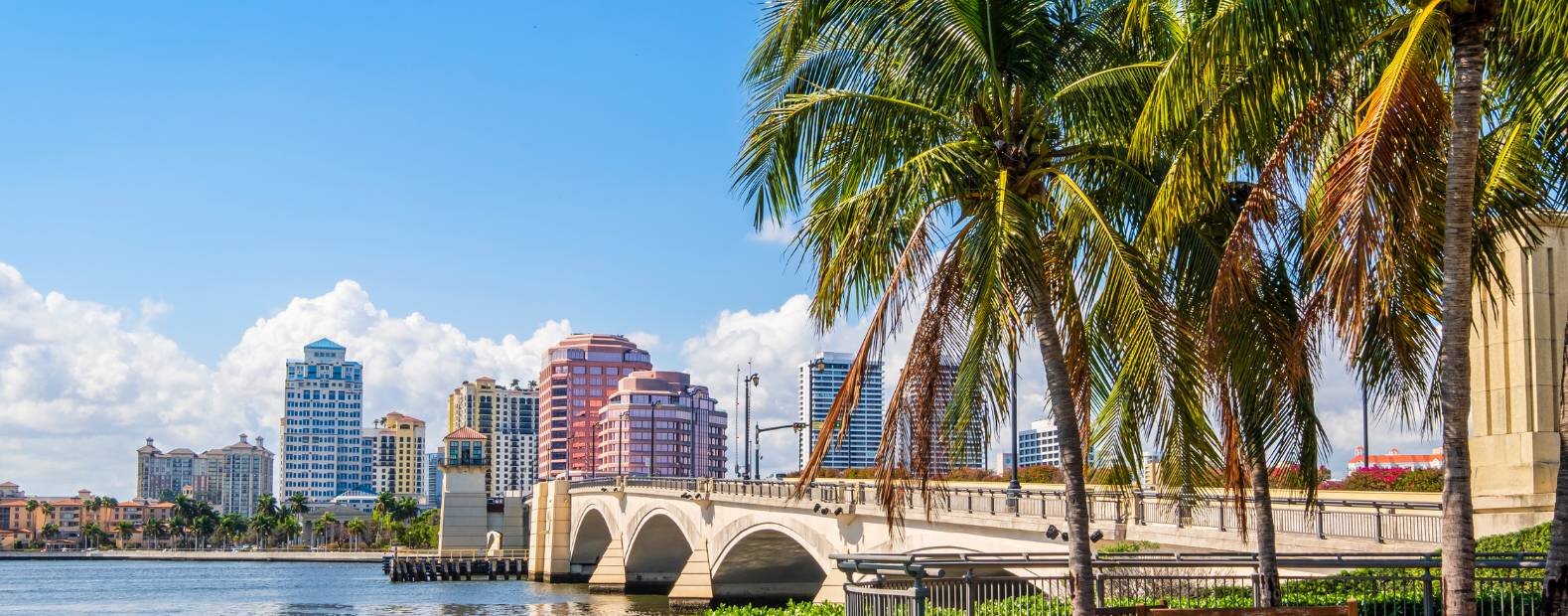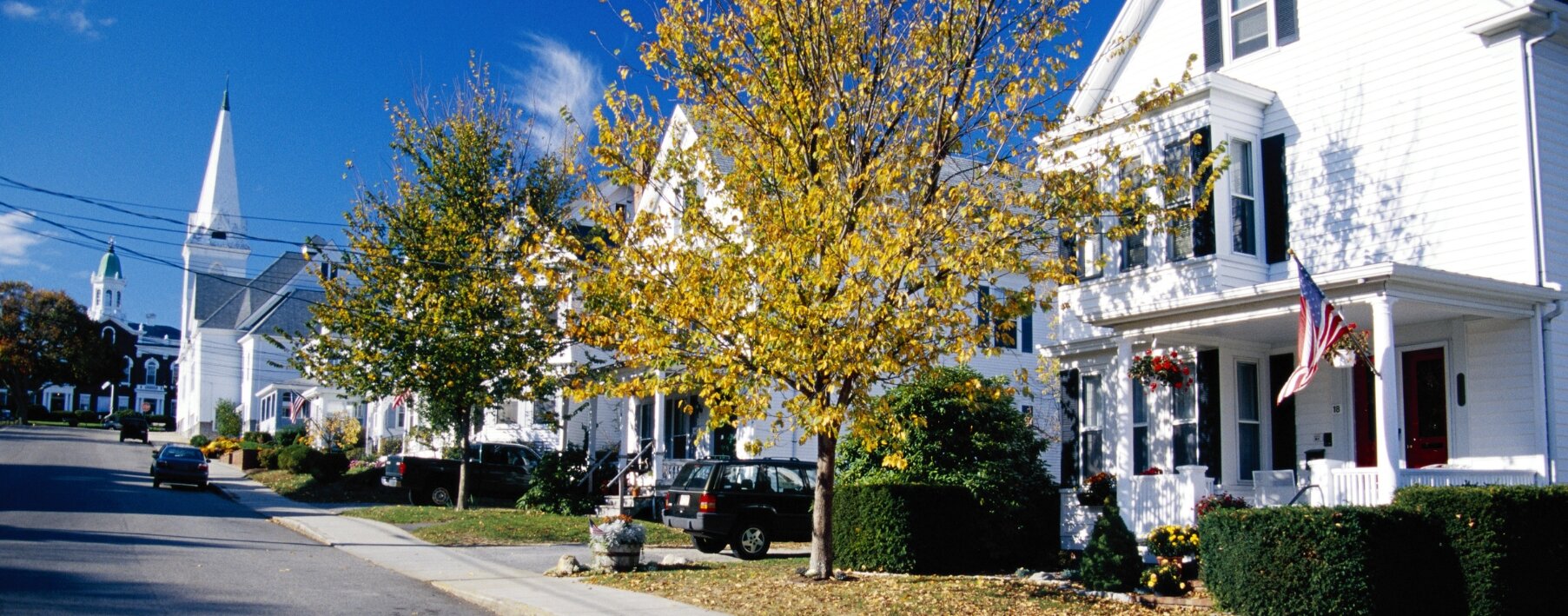Why You Need Landlord Insurance in Florida: Essential Tips

Owning a rental property in Florida comes with its fair share of risks. Landlord insurance in Florida could protect property owners from these risks in ways that homeowners insurance can't. However, it doesn't consider the unique challenges of renting out a property.
This is where landlord insurance steps in and may cover damages, liability claims, and even lost rental income. Whether you own a single-family home or an apartment building, this coverage could offer peace of mind and financial protection. In a state like Florida, where unpredictable events are common, having this kind of insurance is a smart move.
Let's explore the importance of landlord insurance in Florida and discuss related questions.
Key takeaways
- Landlord insurance offers specific protection that standard homeowners insurance does not, including coverage for tenant-related damages and loss of rental income.
- Landlord insurance is not legally required in Florida, but many mortgage lenders mandate it for financed properties.
- The cost of landlord insurance varies by location, property type, and additional coverage needs, with coastal areas being more expensive.
- Regular property maintenance and safety upgrades could lower insurance premiums and reduce claims risks.
Is landlord insurance required in Florida?
If you’re wondering, “Is landlord insurance required in Florida?” the short answer is no. However, while the state doesn't mandate landlord insurance, it's highly recommended for anyone renting out a property. Homeowners insurance in Florida covers your residence, but it won't protect you from the risks of damage to your rented property.
So, if you're asking yourself, "Do I need landlord insurance?" the answer is clear: yes, especially if you want to protect your investment and avoid unforeseen financial strain.
The best landlord insurance in Florida covers specific risks that homeowners insurance or condo insurance doesn't, such as damage caused by tenants or loss of rental income because of unforeseen events. In Florida, where natural disasters like hurricanes are a looming threat, having landlord insurance becomes even more important. Without it, you could be left with significant out-of-pocket expenses in case of an accident on your rental property.
Another reason to consider Florida landlord insurance is that mortgage lenders often require it if you have a loan on the property.
How much is landlord insurance in Florida?
If you’re renting out property in Florida, you must understand landlord insurance costs to manage your expenses. On average, landlord insurance in Florida costs $2,450 per year. However, the exact cost varies depending on several factors, including location, property size, and the type of coverage you choose.
Florida’s unique climate conditions also impact insurance rates. Areas prone to hurricanes or flooding typically have higher premiums.
Cost of landlord insurance in Miami
In Miami, landlord insurance costs approximately $10,357 annually due to the high risk of hurricanes and flooding. Properties in this region typically require additional coverage for wind and water damage.
Cost of landlord insurance in Orlando
In Orlando, premiums are generally more affordable, averaging between $1,000 and $3,000 annually. Being inland, the city faces fewer risks from hurricanes, lowering insurance costs.
Cost of landlord insurance in Tallahassee
Tallahassee is one of the more affordable locations for landlord insurance, with average premiums around $1,130 per year. Its inland position and reduced weather risks contribute to lower costs.
Types of Florida landlord insurance coverage
Owning a rental property in Florida comes with unique risks, so knowing the different landlord insurance coverage options is important. Such insurance for a rental property in Florida could protect landlords from financial losses caused by tenant damage, natural disasters, etc. Let's take a closer look at the key coverage types:
- Property damage coverage: This covers physical damage to your rental property, including appliances, furniture, etc., caused by fire, windstorms, or vandalism. A significant portion of this is dwelling coverage, which specifically protects the structure of the building itself, like the walls, roof, and foundation, against covered risks. Given Florida's vulnerability to hurricanes, this coverage is particularly valuable. However, it's important to check if windstorm or flood coverage is included, as some policies may exclude them.
- Liability coverage: If a guest or tenant gets injured on your property, liability coverage could help cover medical bills, legal fees, or settlement costs. This can be a lifesaver in a litigious situation, ensuring you don't have to pay out-of-pocket for accidents beyond your control.
- Loss of rental income coverage: Also known as rent loss insurance, this protects you if your property is rendered uninhabitable due to covered damages. For example, if a hurricane makes your rental unlivable, this coverage could help replace lost rental income until repairs are complete.
- Optional add-ons: Some policies offer additional coverage for specific needs. For instance, you can add protection for appliances, pest-related damages, or even coverage for eviction-related expenses. These options allow you to tailor your policy to your property's requirements.
Florida landlord insurance coverage exclusions
While landlord insurance offers broad protection, it's equally important to understand what it doesn't cover. Knowing the exclusions can prevent unexpected surprises when filing a claim.
- Flood damage: Flooding is common in Florida, but most landlord insurance policies exclude it. If your property is in a flood-prone area, you'll need separate flood insurance to cover damages.
- Tenant belongings: A landlord's insurance policy does not protect a tenant's personal possessions. Tenants must obtain renter's insurance to protect their belongings and rights. As a property owner, you could add a clause in the lease contract requiring renters insurance for your rental units.
- Wear and tear: General wear and tear from daily use, such as aging roofs or worn-out flooring, is not covered. These are considered part of routine maintenance and are the landlord's responsibility.
- Intentional acts: If damage is caused intentionally by the landlord or tenant, it will likely be excluded. Policies cover accidental or unavoidable damages, not those caused by negligence or malice.
- Appliance maintenance: While rental property insurance in Florida covers damage caused by malfunctioning appliances or equipment, it doesn't cover the cost of repairing or replacing the appliances themselves.
For example, fixing a broken air conditioning or heating system is the landlord's responsibility, and insurance won't cover those expenses. However, some policies may include coverage for renovations that upgrade such systems to more energy-efficient or eco-friendly options.
- Certain natural disasters: Some policies may exclude damage from earthquakes or sinkholes. Additional coverage may be required if your property is at risk for these events.
How to lower your Florida landlord insurance premium
If you manage a rental property in Florida, you may face higher-than-average expenses. In such cases, landlord insurance can be a valuable resource. Many assume this type of insurance is costly; however, the best landlord insurance in Florida can be affordable and won't strain your budget. There are practical ways to reduce costs while still maintaining the coverage you need. Here's how you could lower your premiums without compromising on protection:
Compare multiple quotes
Insurance rates vary significantly between providers. Take the time to shop around and compare multiple quotes to find the best deal. Be sure to look beyond the price and examine the coverage details, exclusions, and any add-ons to ensure the policy meets your needs.
Increase your deductible
Choose a higher deductible to reduce monthly or yearly premiums. While this means you'll pay more out-of-pocket for claims, it can be a good option if you don't require frequent claims.
Bundle policies
Numerous insurance providers offer discounts when you combine multiple policies, such as landlord and homeowners insurance. This step can simplify your insurance management and provide cost savings.
Improve property security
Install security measures like alarm systems, surveillance cameras, or better locks to reduce the risk of theft and vandalism. Many insurers offer lower premiums for properties with advanced security features.
Perform regular maintenance
Well-maintained properties are less likely to experience damages that lead to claims. Keep the roof in good condition, address plumbing issues promptly, and upgrade old appliances to reduce your insurance costs over time.
Consider flood insurance separately
In Florida, many properties require flood insurance, which isn't typically included in landlord policies. By purchasing flood insurance separately, you can avoid inflated premiums that bundle unnecessary coverage.
Maintain a good claims history
Insurance companies often reward landlords with a history of few or no claims by lowering premiums. Avoid filing small claims and focus on preventing damage through proactive real estate management.
Work with an insurance agent
Consult an experienced insurance agent to identify discounts or tailor your policy to meet your needs. Agents often have insights into lesser-known yet effective ways to save. Take their advice into consideration to save big bucks.
Limit risk factors
If your property has high-risk features like a swimming pool or old wiring, keeping them in optimal condition can cause lower premiums. For example, installing safety fences around pools or upgrading electrical systems reduces your risk and, consequently, your insurance costs.
Still have questions?
Interested in learning more about landlord insurance in Florida? Here are answers to some frequently asked questions that might help clarify your concerns.
What does a DP3 policy cover in Florida?
A DP3 policy is one of the most common types of landlord insurance that provides coverage for rental properties on a replacement cost basis. It typically covers property damage from risks like fire, windstorms, or vandalism. It also includes liability coverage for injuries on the property and compensation for lost rental income if the home becomes uninhabitable due to damage.
How much is tenant insurance in Florida?
On average, tenant or renters insurance could generally cost between $13 and $175 per month. This coverage protects a tenant’s personal property and includes liability coverage for incidents like accidental damage to the property.
Is it legal to require renters insurance in Florida?
While Florida law doesn’t specifically require renters insurance, it is legal for landlords to necessitate by adding a condition in the lease agreement. This means you can request tenants to carry renters insurance as a condition to rent your property. Doing so could help ensure tenants take responsibility for their belongings and any accidental damages.
Who has the cheapest landlord insurance in Florida?
Several providers offer cheap landlord insurance rates in Florida. However, the cheapest option for you depends on your property’s location, coverage needs, and deductible preferences. Compare prices from multiple insurance providers to find the best combination of affordability and protection.
What factors influence the price of landlord insurance in Florida?
Several factors influence the price of landlord insurance in Florida, including the property’s location, size, and age. Due to increased risk, coastal areas or regions prone to hurricanes often have higher premiums. The level of coverage, deductible amount, and additional coverage like flood insurance also impact the price.



